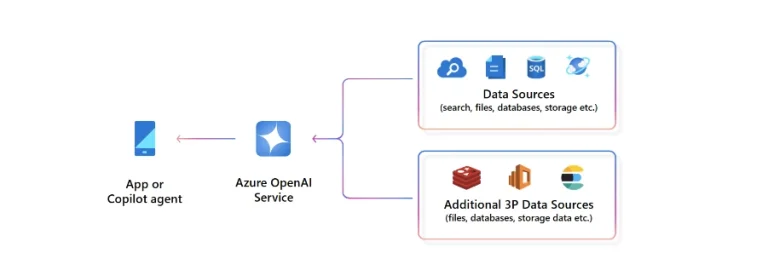
In today’s technology-driven era, Artificial Intelligence (AI) is significantly transforming the gambling industry. This article explores the intersection of AI with gambling, focusing on predictive analytics and personalized gaming experiences that are reshaping betting and gaming landscapes.
Gambling has historically been unpredictable, but AI introduces a shift towards calculated probabilities and tailored experiences. AI’s widespread influence is evident from traditional casinos to online betting platforms, changing game design, betting dynamics, and player experiences.
Central to this shift is predictive analytics, an AI branch that uses data to forecast gambling outcomes, player behavior, and identify potential gambling risks. This leads to more controlled and engaging gaming environments. Additionally, AI’s ability to customize gaming experiences presents a new era of personalized gambling, offering players bespoke journeys based on their preferences.
However, this AI-driven gambling world raises ethical, privacy, and responsible gaming concerns. Our article will investigate AI’s technological advancements in gambling and the necessary balance between innovation and ethical gambling practices.
The Role of AI in Modern Gambling
Artificial Intelligence (AI) is reshaping the gambling industry by enhancing player experiences and operational efficiency. AI enables sophisticated data analysis and machine learning algorithms to optimize game offerings and betting odds, adapting to technological advancements. This shift from mechanical devices to AI-driven approaches is evident in online gambling, where AI personalizes gaming experiences, manages risk, and improves customer service through chatbots and tailored game recommendations. Moreover, AI ensures fair play by monitoring gaming patterns for anomalies, maintaining a secure environment. This integration signifies a broader digital transformation, indicating a future where AI and gambling are closely intertwined.
Predictive Analytics in Gambling
Big Data, particularly predictive analytics, is revolutionizing the gambling industry. By analyzing historical data, statistical algorithms, and machine learning, it predicts future game results, player actions, and betting trends. This helps operators understand player preferences, customize games and marketing, and improve player engagement and retention. Additionally, it helps identify potential problem gambling and fraudulent activities by monitoring betting patterns and transactions. However, the technology faces challenges like data privacy concerns and the unpredictability of human behavior. Despite these, predictive analytics is becoming vital in shaping gambling’s future.
Personalized Gaming Experiences Through AI
Silvio Savarese, Executive Vice President and Chief Scientist at Salesforce AI Research: He believes that “I’ve long believed that AI won’t just enhance the way we live, but transform it fundamentally. … AI is placing tools of unprecedented power, flexibility, and even personalization into everyone’s hands, requiring little more than natural language to operate. They’ll assist us in many parts of our lives, taking on the role of superpowered collaborators“
The gambling industry is undergoing a transformation with AI, offering customized gaming experiences based on player data analysis. By evaluating past behaviors like game choices and betting habits, AI tailors recommendations to individual preferences, enhancing engagement and satisfaction. This technology also plays a pivotal role in marketing, enabling operators to craft targeted promotions that resonate with players’ interests. While this enhances the gaming experience and operator retention, it’s vital to maintain a balance between personalization and data privacy, ensuring ethical use of information and sustaining player trust in a responsible gambling environment.
AI and Responsible Gambling
The integration of Artificial Intelligence (AI) in online gambling platforms is revolutionizing the way responsible gambling is promoted and managed. AI’s ability to analyze player behavior and betting patterns plays a crucial role in identifying and mitigating potential problem gambling. This technology allows operators to intervene proactively, ensuring a safer and more responsible gaming environment.
Leading online gambling sites are exemplary in utilizing AI for responsible gambling. By employing advanced algorithms, these platforms monitor player activities to detect any signs of compulsive gambling. When such patterns emerge, AI systems can prompt measures like setting limits on how much and how often players can play for real money. This approach not only helps in promoting responsible gaming but also ensures a secure environment for players who enjoy betting online.
The use of AI in sites highlights the balance between offering exciting opportunities to play for real money and maintaining responsible gaming practices. It exemplifies how technology can be leveraged not just for entertainment but also for the welfare of the gambling community.
Challenges and Limitations of AI
Timnit Gebru, founder and executive director at The Distributed AI Research Institute
“We’re seeing a kind of a Wild West situation with AI and regulation right now. The scale at which businesses are adopting AI technologies isn’t matched by clear guidelines to regulate algorithms and help researchers avoid the pitfalls of bias in datasets. We need to advocate for a better system of checks and balances to test AI for bias and fairness, and to help businesses determine whether certain use cases are even appropriate for this technology at the moment.”
While AI’s integration into gambling offers numerous advantages, it’s not without challenges and limitations. One significant concern is data privacy; the collection and analysis of player data must be handled with utmost care to protect personal information. Additionally, the reliability of AI predictions, particularly in an arena as unpredictable as gambling, can be variable. Algorithmic biases, a result of flawed data or programming, can lead to unfair gaming experiences or inaccurate player profiling. These challenges underscore the need for continuous oversight, ethical AI practices, and transparency in the use of AI in gambling. As the industry evolves, addressing these issues is crucial for maintaining trust and integrity in AI-driven gambling platforms.
The Future of AI in Gambling
The future of AI in gambling is poised for continued innovation and growth. Emerging technologies like deep learning and neural networks are expected to further refine predictive analytics and personalization in gaming. We anticipate a surge in AI-driven virtual reality casinos, offering even more immersive and interactive gaming experiences. Moreover, advancements in AI could lead to more robust responsible gambling tools, enhancing player protection. However, this growth journey must be navigated with a keen eye on ethical considerations and regulatory compliance. As AI technology advances, its potential to transform the gambling landscape remains boundless, promising a more engaging, safe, and responsible future for the industry.
By Gary Bernstein






